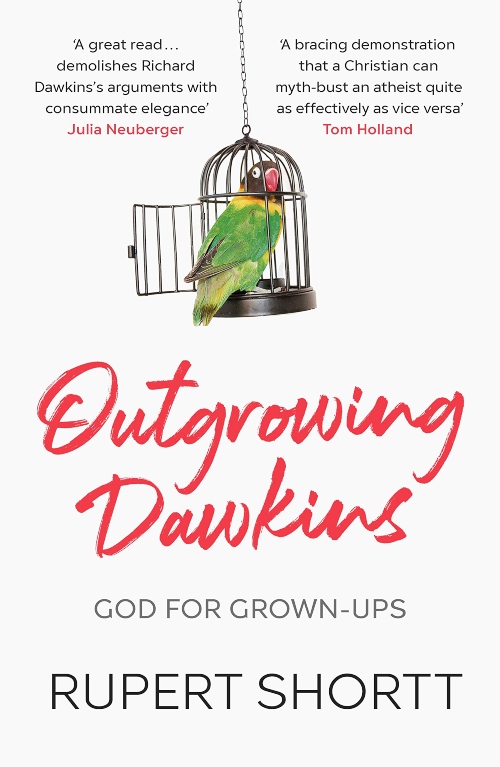Outgrowing Dawkins: God for grown-ups by Rupert Shortt
A good introduction if you are overawed by the arguments of the new atheists, pointing out flaws while recognising the constructive criticism
 Outgrowing Dawkins: God for grown-ups
Outgrowing Dawkins: God for grown-ups
By Rupert Shortt
SPCK
ISBN 978-0-281-08410-4
Reviewer: Stephen Copson
In this concise analysis, Rupert Shortt addresses the arguments of the recent crop of “new atheists” and more specifically Richard Dawkins, in his anti-religious polemics, but more directly in his 2019 work, Outgrowing God.
In short he suggests that in his writings Richard Dawkins misrepresents religion. He points out the shortcomings of the ‘slash-and-burn’ approach to religion – taking caricatures of facets of Christianity and constructing an Aunt Sally of faith that is then knocked down. Unsurprisingly, this is not what scientific thinking suggests is a good methodology. Shortt adds his voice to counter the simplistic appeal to ‘demonstrable fact’ as a sufficient tool to ‘prove’ or otherwise the lived reality of faith, given that truth itself may be many-splendoured but cannot be reduced to a thing.
While acknowledging that it does have extremes and wild places (faith can express as fundamentalism), Shortt argues that religion offers a nuanced and fruitful way to explore and understand the world and God. He argues for a mature appreciation of the Bible that gathers sacred story, personal witness, prophetic insights and the building blocks for theological reflection. He draws on examples from the stories of the people of God, including those who have contributed to scientific advances. It is not inevitable for a scientist to be an atheist. Christians too can hold to a belief in the veracity of science and still stand firm on a credible belief in and experience of God.
This is a lesson that should be encouraged in our churches, especially for young people. Too often young people seeking faith are presented with a stark choice: Bible or science, faith or fact. This is inadequate (although it suits some Christian commentators as well as Dawkins). To encourage Christians to build a panic room will do nothing to prepare them to live well in the real world which is far more complex and messy than either scientific fundamentalism or scriptural literalism will allow. We should be part of the conversation. Developments in genetics and artificial intelligence require an ethical framework; environmental concerns ought to be rooted in a sense of stewardship of the planet; considerations of human personality and sexuality need to be sensitive to explore what it means to be made in the image of God and to listen to theories of gender diversity. Christians can be instructive and instructed in these exchanges.
This would be a good introduction to read if you are overawed by the arguments of the new atheists. It does not rebut point by point but invites the reader to see the flaws of an either/or mentality and does recognise that Dawkins does indeed offer constructive criticism of some religious assertions. With the reality of the scientific understandings, Christians need not adopt a siege mentality but be ready with a mature faith rich in insight and experience to engage with others in understanding what it means to be human and what it means to grow up into God.
Stephen Copson is a regional minister with the Central Baptist Association
Baptist Times, 10/09/2021